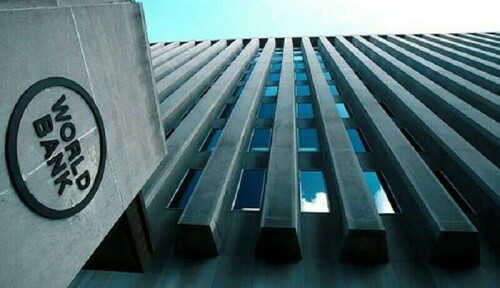ISLAMABAD: The International Monetary Fund (IMF) has urged Pakistan to invest one per cent of its GDP annually — equivalent to over Rs1.24 trillion based on current estimates — in climate resilience and adaptation reforms to prepare for recurring extreme weather events, particularly floods, and sustain economic growth and reverse inequalities.
In a special policy advisory, the IMF noted that ongoing reforms under the Extended Fund Facility (EFF) — including fiscal, labour market, trade, and state-owned enterprise (SOE) reforms — could boost Pakistan’s growth by 2pc over five years while significantly reducing inequality.
The Fund also highlighted that proactive investment in climate-adaptive infrastructure could reduce the negative growth impact of a natural disaster shock by one-third while ensuring a quicker and more complete recovery.
The lender noted that about 1pc of GDP investment in adaptation infrastructure would increase Pakistan’s climate resilience and buffer climate shocks. Such investments would reduce the growth impact of natural disasters by about a third and return Pakistan to its previous GDP level more quickly.
Says ongoing reforms may boost country’s growth by 2pc over five years, reduce inequality
Enhancements in public investment efficiency in line with the Climate-Public Investment Management Assessment (C-PIMA) Action Plan would further improve such resilience, particularly in the immediate aftermath of the shock.
The C-PIMA Action Plan, adopted by the Pakistani government, has led to the country’s request for up to $2 billion in additional financing from the IMF under the climate resilience window. Further discussions on this financing are expected at the upcoming annual meetings of the IMF and World Bank later this month.
The additional investment needed to bolster resilience would lead to moderately higher debt levels. A scenario in which fiscal instruments — consumption and income taxes — responded to such a shock would put public debt on a downward path following recovery, although such a policy may not be feasible or desirable in the face of a large natural disaster. As such, further progress on fiscal consolidation and fiscal structural reforms are critical to maintaining the fiscal space that would be necessary to weather such a shock.
The policy note observed that Pakistan’s living standards had been declining for decades, and despite a similar starting point in the early 1980s, Pakistanis’ incomes stagnated and fell behind their regional peers. At the same time, poverty rates remained elevated, and social development indicators also lagged behind those of peers.
This had been accompanied by weak human capital outcomes, low fiscal capacity, protection for favoured industries, and a large state footprint. Contributions to growth from human capital and efficiency gains were low, and health and education indicators, while improving in recent years, still lag behind regional and lower-middle-income peers. Human capital spending as a share of GDP has steadily declined.
The consequences of these structural weaknesses had been exacerbated by increasingly high climate vulnerability. “Pakistan’s climate faces a rate of warming significantly higher than the global average. This will bring increasingly greater climate variability and extreme events, including reduced water availability, more severe and longer droughts, accelerated glacial melt, more variable and intense monsoons accompanied by floods and landslides, and sea-level rise encroaching on coastal settlements and infrastructure,” the IMF said.
The negative macroeconomic consequences of such a shift have already been felt. Climate- and weather-related disasters, which have increasingly been exacerbated by climate change, resulted in $29.3bn in economic losses between 1992 and 2021, equivalent to 11.1pc of 2020 GDP, which slowed developmental gains.
More recently, the floods of 2022 killed 1,700 people, displaced eight million, increased the poverty rate by up to four percentage points, and brought economic losses equivalent to 4.8pc of FY22 GDP, with reconstruction needs estimated at 1.6 times the budgeted national development expenditure of FY23. The disaster was exacerbated by Pakistan’s weak urban planning, infrastructure and water resource management.
Based on some economic models in around 80 countries, the IMF observed that a full-reform scenario encompassing fiscal, structural and market reforms could help Pakistan’s output level increase by 7pc in five years. Structural reforms would also reduce the public debt to GDP ratio by about 6pc over the same period. The combined effect of these reforms could also generate an aggregate decline in consumption inequality by about 2pc over the same horizon.
These structural reforms could also substantially raise Pakistan’s growth, the policy paper observed, adding that their combined effect could deliver a medium-term increase in real GDP growth of 2.13pc. Moreover, coupling structural reforms with broader fiscal reforms was likely to deliver much larger growth dividends.
The IMF’s economic models suggested that the pursuit of all of these reform paths is critical for Pakistan to successfully shift its development model away from a subsidy-, preference- and protection-driven system that has not worked for decades.
“Sequencing of reforms will also be important. For instance, product market reforms, which would raise incomes, could precede and support more difficult labour market reforms,” the IMF noted.
At the same time, the Fund argued that the benefit of complementing these reforms with adaptation investments to guard against climate vulnerabilities and build resilience could be much greater and gains sustainable. “While critical to positively shifting its growth model, the success of Pakistan’s structural reform agenda requires stability and resilience in the face of exceptional climate vulnerabilities,” it said.
Published in Dawn, October 17th, 2024















































